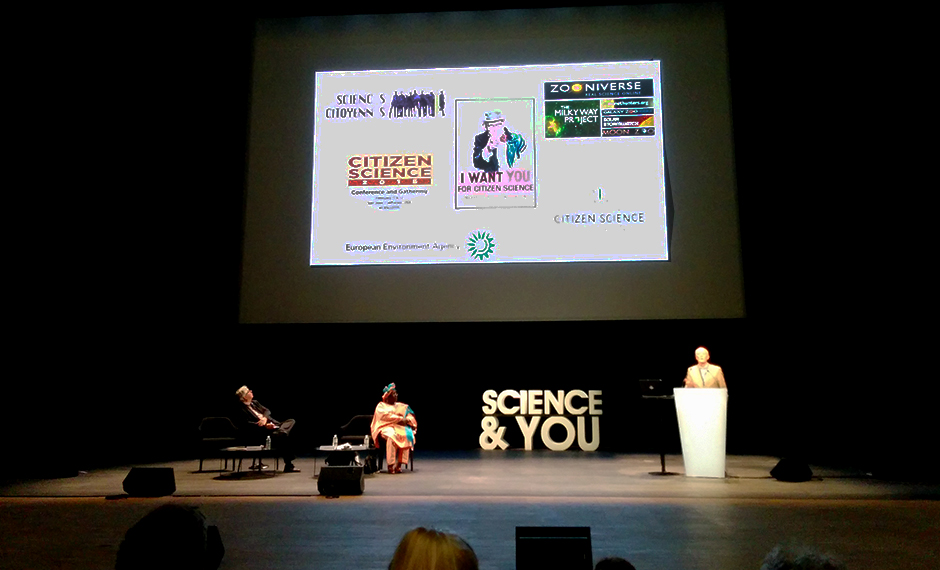Science & You is a French cultural and scientific international event that was held from 2-6 June in Nancy, France. The programme consisted of a diverse range of activities for both public and professional audiences, with over 10,000 visitors in total. The Journées Hubert Curien Conference on the theme of science communication was attended by two VA colleagues, who both contributed with sessions.

With 12 keynote speakers and over 50 workshops on the theme of science communication today and tomorrow, the four-day programme offered a huge variety of interesting topics, including citizen science, the role of digital technology and trends and patterns in science communication research. Sessions were either held in French or English with simultaneous translation for the plenary keynote lectures.
Opportunities to share VA’s work
In her session on “The media and public confidence in science – do they go hand in hand”, Maria Lindholm, Director of Research at VA, spoke about VA’s annual attitude surveys on public confidence in research as well as research conducted with the SOM Institute at the University of Gothenburg investigating the affect of media reporting on confidence levels.
“Delegates were particularly interested in our research into the general reporting of science and the trends in the amount of media coverage given to science and technology in Sweden,” said Maria. “This is encouraging given our additional studies into media coverage of research, which we have just started with the SOM Institute”.
VA’s mass experiments in schools was the topic of Fredrik Brounéus’ workshop on “Schools and scientists – doing research together” with a focus on the 2015 Teabag Experiment in which Swedish pupils help scientists study the decomposition of organic materials in soil.
“We have been running mass experiments in Sweden for a number of years now so have a lot of valuable knowledge to share,” said Fredrik, who is Project Manager of the experiments at VA.
“My session was very well received, particularly by delegates interested in how the concept might work in their own countries. Questions related to how we select the experiment and recruit classes/schools. We also discussed how to encourage more experiments from the social sciences”.
New contacts, new ideas
The conference provided both Fredrik and Maria with new sources of inspiration to inform VA’s work, lots of new contacts as well as opportunity to reacquaint with ‘old’ contacts from other European science communication organisations.
“The programme featured a number of interesting presentations on creative science communication projects/initiatives as well as on citizen science, such as the keynote given by Alan Irwin from Copenhagen Business School,” said Fredrik.
“The topic of this year’s VA conference is citizen science and we have taken away a number of useful contacts and ideas to inform our own work in this area.”
“Conferences are always a good opportunity to take a step back from our everyday work and put our work in Sweden into perspective,” commented Fredrik.
“One of the papers examined folk theories of Indian farmers with regard to fertilisers and insecticides. It was a reminder of how science communication can be about life or death and certainly made me think of how comparably simple the situation in Sweden is with a small population, a single national language, high literacy rates and excellent communication channels.”
“The broad programme offered something for everyone involved in science communication. I have already followed up a number of new contacts and potential collaborations. All in all, it was a useful and informative four days!”, Maria concluded.

